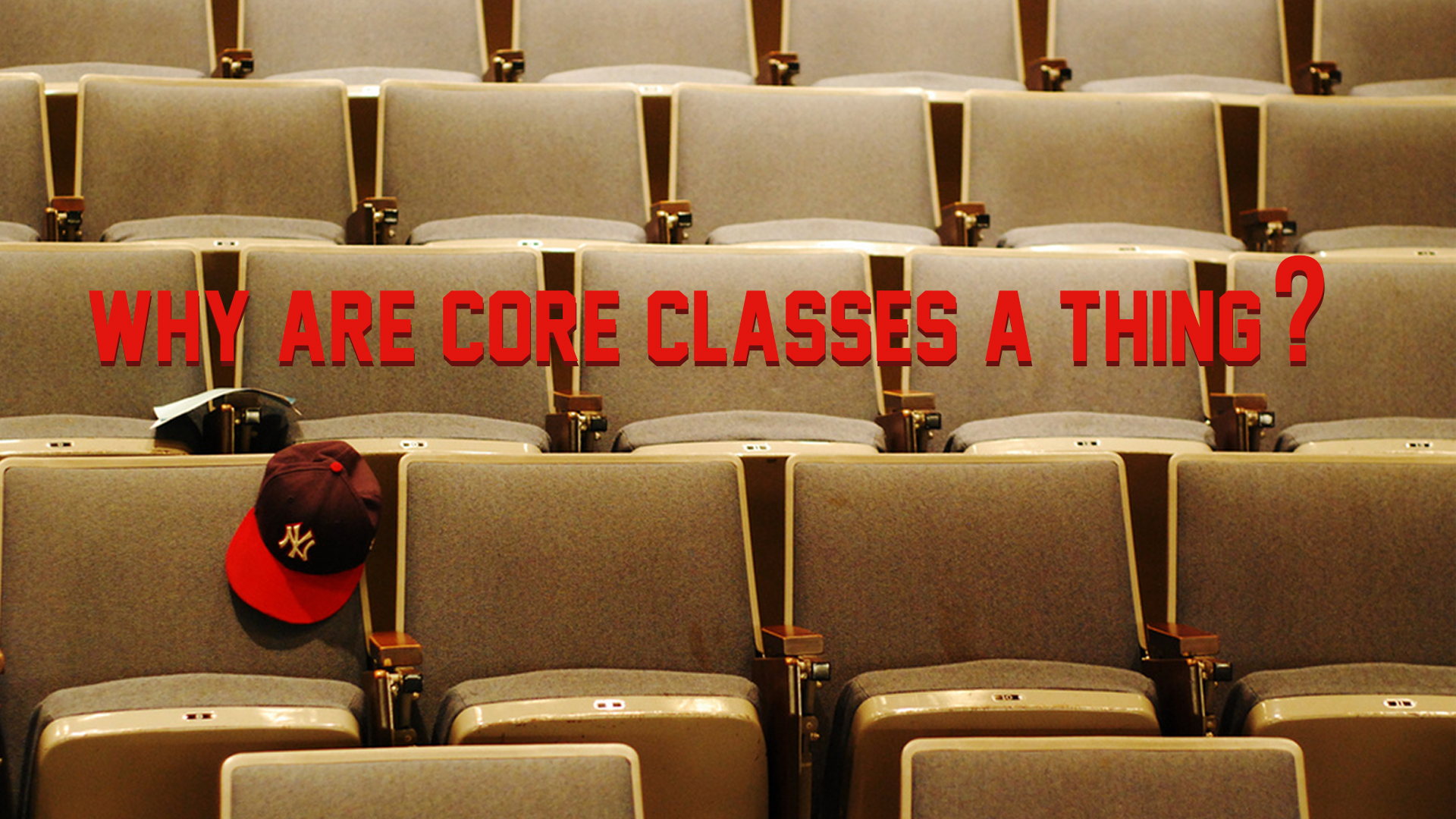During my time at UTRGV I have suffered through over a year of classes that I have no interest in. Perhaps you can relate?
It’s been frustrating and genuinely I feel I did not get anything positive out of taking eight credit hours of science, six credit hours of history and three of math. For reference, I’m a mass communication major.
During my time at UTRGV I have suffered through over a year of classes that I have no interest in. Perhaps you can relate?
It’s been frustrating and genuinely I feel I did not get anything positive out of taking eight credit hours of science, six credit hours of history and three of math. For reference, I’m a mass communication major.
Memorization is not really my thing, and I feel like that’s what my history and science courses led me to do – and re-do – in the case of astronomy 1301.
Of course, I realize the importance of history and learning from the past so we don’t repeat our mistakes. And while I understand that some of you enjoy reading about the United States’ Founding Fathers and the history of war from your textbook, or off a PowerPoint prepared by a professor, it is not necessarily the most effective way to learn.
There are museums and historic sites to visit that won’t leave you needing to down a Red Bull in order to focus. Plus, most of the information you take in is biased in some form by whoever wrote it, with certain events covered while others are omitted.
More so, I don’t see any reason why having to study (entry-level history, mathematics and so on) should be forced on adults who have heard basically the same thing in their junior high and high school years.
While I’ve much preferred my college experience than that of high school — the flexibility of scheduling, not having a dress code, and not being sent for tardy slips — I feel the two educational institutes are more similar than they ought to be.
Students enter college to prepare themselves for their career, not spend two years being fed the same information they’ve heard before— most of which they won’t retain.
What also stinks is that many core classes do not transfer should one decide to switch universities, which means they would have to start back at square one. Imagine that!
I’ve sat through lectures paying no mind to what’s being said, but simply presenting myself for the attendance score. Then, I would cram for the exam and forget the lesson by the time I turned in my Scantron.
I took music appreciation to fulfill my fine arts credit and even though the class began at 1:30 p.m. – and I had a full night’s rest – I would have to pinch myself just to stay awake.
Again, I understand the importance of being cultured, but how about that duty be left to the individual. If you want to be able to participate in a conversation about Mozart’s early works, why not just go online and listen to his compositions?
Are college students a few centuries from now going to be forced to study Bodak Yellow by Cardi B?
What I’m saying is that being able to identify Chopin’s or Bach’s musical work is not all that useful. And yes, I had to look up those names.
Considering a lot of people are not sure what to study when they enroll in college, having a core curriculum might seem to make some sense.
However, it would make more sense to cut out the core curriculum and directly take classes needed for your major. This way you’d be able to graduate in two years and get straight into an educated workforce.
Moreover, if obtaining a bachelor’s degree only took two years, student debt would be much, much lower.
In fact, many people choose not to pursue a higher education simply because of the high cost. Eliminating two years would cut the cost in half, likely making college more appealing to many who have been uncertain to take the plunge.
A report by the U.S. Department of Education’s National Center for Education Statistics shows that nearly one-third of college students end up switching their major within the first three years of their studies.
A related study by Complete College America – an organization with the goal of increasing student graduation rates – found that the majority of public university college students complete their bachelor’s degree in six years, as opposed to the recommended four.
One of the major reasons for this is because of students deciding to switch majors. So really, what good do required classes outside of your major do?
If one is really not sure what they would be passionate about doing for the rest of their life, taking a leap year is always an option.
Malia Obama, daughter of 44th President Barack Obama, did.
By taking a leap year, one would be able to de-stress from the trauma of high school and embark on a journey of self-discovery. Whether that means traveling, teaching a community Zumba class, dedicating your time to selling homemade crafts on Etsy or working at a gas station, taking some time away from school can help those questioning whether they want to continue studying get an idea of what they’d like to pursue in their life.
If they decide they can contribute to society without obtaining a degree, more power to them.
With a vision and some spunk, one could definitely make a comfortable living never having stepped foot in college. For example, neither Henry Ford nor Albert Einstein obtained a post-secondary education.
Nobody really has life figured out, whether you’re a CEO of a multi-million-dollar company or a teacher who has taught kindergarten for 25 years.Therefore, I don’t think there should be any issue with young adults completing or not completing college early and entering the workforce at a young age.
People at every age are still maturing and learning from their mistakes.
I hope that one day the United States education system will mandate all public and private universities to cut out all the needless fluff and prioritize teaching students what they willingly want to learn in order to take them where they need to go.
I wish there was something I could do about it, but to be honest, I’m not very interested in education studies or going the political route where I can effectively instill change.
But to anybody who is, I urge you to pay extra attention to my argument. Hopefully it resonates with you.






